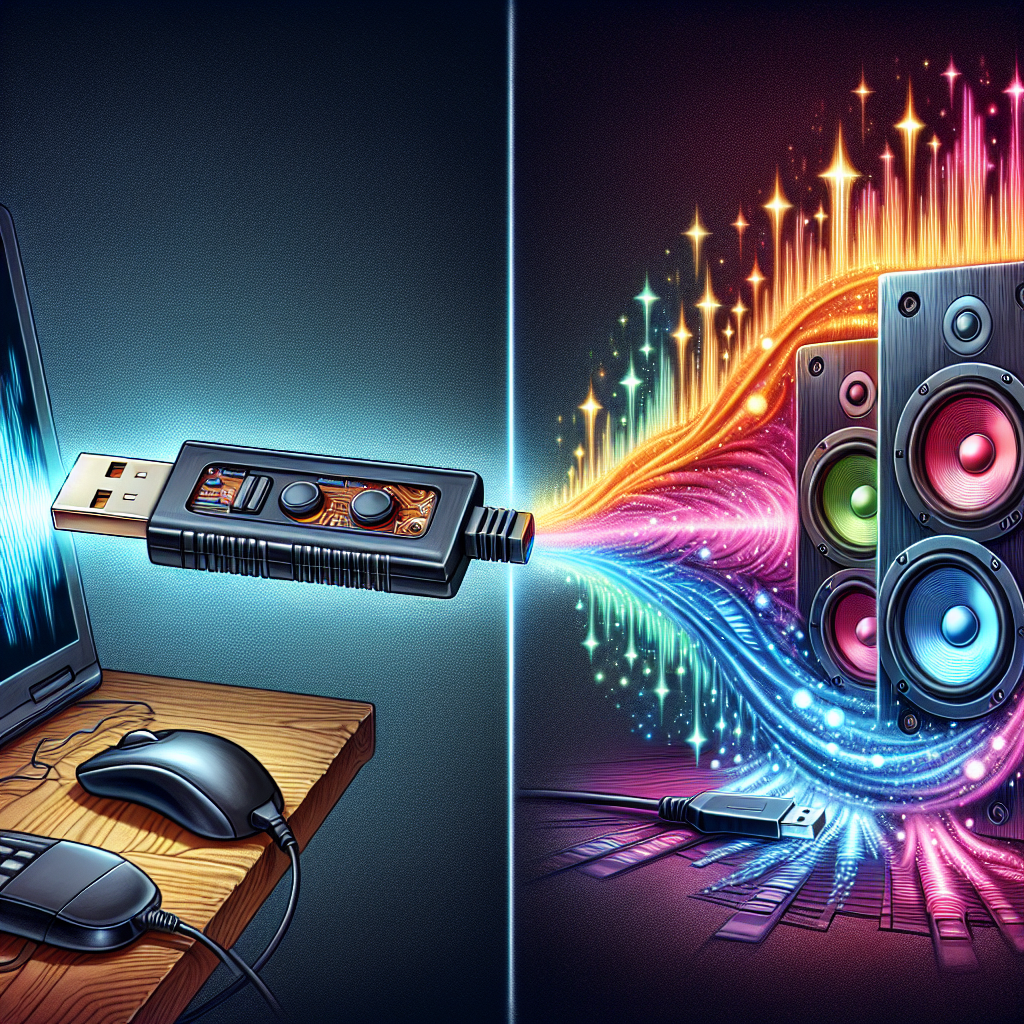In the realm of digital audio, the quality of sound can make a significant difference in your overall experience, whether you’re a gamer, audiophile, or professional content creator. Built-in audio solutions are convenient and cost-effective, but they often fall short in delivering the high-quality sound demanded by discerning users. This is where USB sound cards come into play. In this article, we’ll delve into how USB sound cards enhance audio quality compared to built-in audio systems.
What is a USB Sound Card?
A USB sound card is an external audio interface that connects to your computer via a USB port. Unlike integrated sound cards that are built into the motherboard, these external devices offer upgraded audio features and superior performance.
Key Differences Between USB Sound Cards and Built-in Audio
To understand the advantages of USB sound cards, let’s first examine the key differences between these and built-in audio systems:
| Feature | USB Sound Cards | Built-in Audio |
|---|---|---|
| Sound Quality | Superior | Standard |
| Noise Isolation | Excellent | Poor |
| Connectivity Options | Multiple | Limited |
| Customizability | High | Low |
| Processing Power | Independent | Shared with CPU |
Sound Quality
One of the primary reasons users opt for USB sound cards is the marked improvement in sound quality. Built-in audio solutions often use basic sound chips that provide standard audio performance suitable for everyday tasks. In contrast, USB sound cards are designed with high-fidelity audio components, including better DACs (Digital-to-Analog Converters) and ADCs (Analog-to-Digital Converters). This results in clearer, more detailed sound reproduction with less distortion.
Noise Isolation
Another critical advantage of USB sound cards is their ability to isolate noise. Built-in sound cards are susceptible to electrical noise and interference from other components within the computer. Because USB sound cards are external, they are less prone to such interference, providing a cleaner audio signal and a better overall listening experience.
Connectivity Options
USB sound cards often come with a variety of connectivity options, such as multiple input and output ports, optical audio connections, and even support for 7.1 surround sound systems. Built-in audio solutions typically have limited connectivity, often restricted to just a few 3.5mm jacks. This limitation can be a significant drawback for users looking to connect multiple audio devices.
Customizability
With USB sound cards, users can customize their audio settings to a far greater extent than with built-in solutions. Many external sound cards come with software that allows for detailed audio adjustments, from equalization settings to virtual surround sound configurations. This level of customization can be particularly beneficial for gamers and content creators who need precise audio control.
Processing Power
One often overlooked aspect is the processing power required for audio tasks. Built-in audio solutions share the computer’s CPU for processing audio, which can be a drawback when running multiple applications simultaneously. USB sound cards have their own dedicated processors for audio tasks, ensuring that your computer’s CPU resources are free for other activities, ultimately leading to better system performance.
Real-World Applications and Benefits
Let’s take a look at how USB sound cards can enhance audio quality in specific scenarios:
Gaming
Gamers benefit significantly from USB sound cards due to the superior sound quality and customization options. Features like virtual surround sound can provide an immersive gaming experience, allowing you to hear directional audio cues more clearly. This can give you a competitive edge in multiplayer games where sound awareness is crucial.
Music Production
For musicians and producers, audio quality is paramount. USB sound cards provide high-quality input and output options, ensuring that recordings are clear and free from interference. The ability to connect multiple instruments and microphones can be a game-changer in a studio setting.
Content Creation
Podcasters, streamers, and video editors can also benefit from the improved audio quality and customizability of USB sound cards. Clearer sound input and output can make a significant difference in the final product, whether you’re recording a podcast or editing a video.
Conclusion
While built-in audio solutions are sufficient for basic tasks, USB sound cards offer a range of benefits that can significantly enhance your audio experience. From superior sound quality and noise isolation to increased connectivity and customizability, the advantages are clear. For those serious about their audio, investing in a USB sound card is a worthwhile decision.

